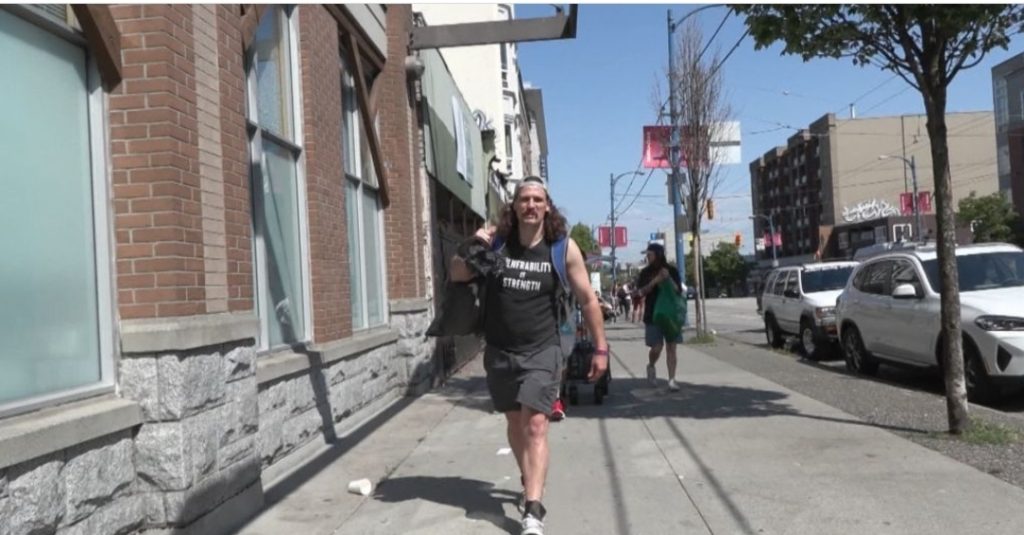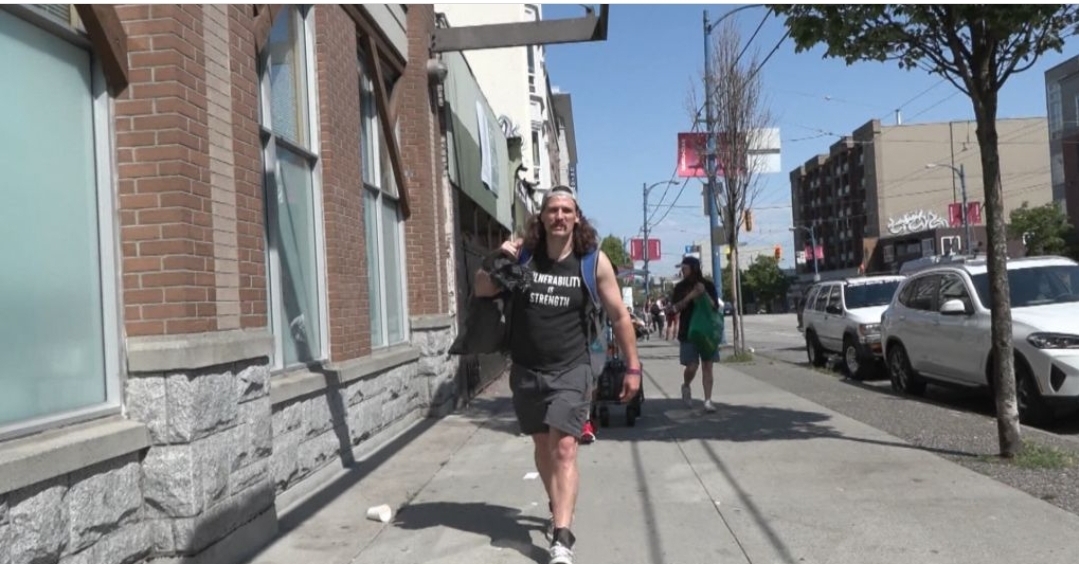Hockey pro who struggled with addiction returns to Vancouver’s DTES to give back 🙌
From scoring goals in front of thousands of cheering fans in the Western Hockey League to sleeping on the streets in Vancouver’s Downtown Eastside. This is the story of Brady Leavold.
In 2008, after several years of suiting up for the Swift Current Broncos and Kelowna Rockets, Leavold signed with the National Hockey League’s Tampa Bay Lightning. A dream come true for a kid from Port Coquitlam.
During that time, Leavold says he dabbled in the party lifestyle, but his life took a turn for the worst when he sustained an injury and became addicted to OxyContin—sending him into a downward spiral.
Before you know it, I was doing heroin, fentanyl and homeless in the Downtown Eastside,” Leavold told CTV News Vancouver.
From scoring goals in front of thousands of cheering fans in the Western Hockey League to sleeping on the streets in Vancouver’s Downtown Eastside. This is the story of Brady Leavold.
In 2008, after several years of suiting up for the Swift Current Broncos and Kelowna Rockets, Leavold signed with the National Hockey League’s Tampa Bay Lightning. A dream come true for a kid from Port Coquitlam.
During that time, Leavold says he dabbled in the party lifestyle, but his life took a turn for the worst when he sustained an injury and became addicted to OxyContin—sending him into a downward spiral.
Before you know it, I was doing heroin, fentanyl and homeless in the Downtown Eastside.
He says there was a stretch of time when he had numerous overdoses and nearly lost his life. Drug use was a dangerous game that the former enforcer says he played to cope with more than just his knee injury.
“I was sexually abused as a kid, and when I found those painkillers, it didn’t just take away the physical pain—it took away the emotional pain that I was carrying as well,” said Leavold.
“I went my whole life thinking toughness was fighting on the ice, but real toughness was the moment I reached out and said ‘I’m not okay and I need help.’”
Over the last three years, the 35-year-old has been able to rebuild his life and maintain his sobriety. He’s currently living in Ontario’s cottage country and travels around the country speaking to young hockey players in the hopes of steering them from a life of addiction.
On Thursday, Leavold returned to the Lower Mainland and visited the DTES with over 250 paper bags full of snacks, fruit and socks. He spent the afternoon walking up and down sidewalks handing out bags, giving fist bumps and hugs to whoever needed it. It was a random act of kindness that he helped pay for, along with donations.
“I don’t know what tomorrow brings, but today I’m in a position to help others, and I’ll continue doing this for as long as I possibly can, said Leavold.
The opioid crisis in Vancouver, Canada, has become a huge concern for the citizens and the government alike. Over the past decade, the number of opioid-related deaths in the country has increased significantly. Vancouver has been hit particularly hard, with a high number of opioid overdoses and deaths recorded every year. The crisis has been attributed to various factors, including the availability of cheap synthetic opioids and the over-prescription of prescription opioids. The situation has led to many people being addicted to opioids, with some turning to illegal activities to support their drug habits.
The Vancouver city council has been working to address the opioid crisis by implementing harm reduction measures such as safe injection sites, offering overdose prevention medication, and training first responders to handle opioid-related emergencies. However, there is still much to be done to combat the crisis. The government needs to increase access to addiction treatment, provide better education on the dangers of opioids and take actions to reduce the availability of illegal opioids. It is a massive challenge for the country, but with a collective effort from government and citizens, the opioid crisis in Vancouver DTES can be tackled.
*New health-care centre brings various services to people living in Vancouver’s DTES.
*Filmmaker behind ‘Insanity’ documentary calls for Canada to declare mental health emergency.
*B.C. announces $11M grant for training SRO tenants.
www.foodformenfoundation.org


